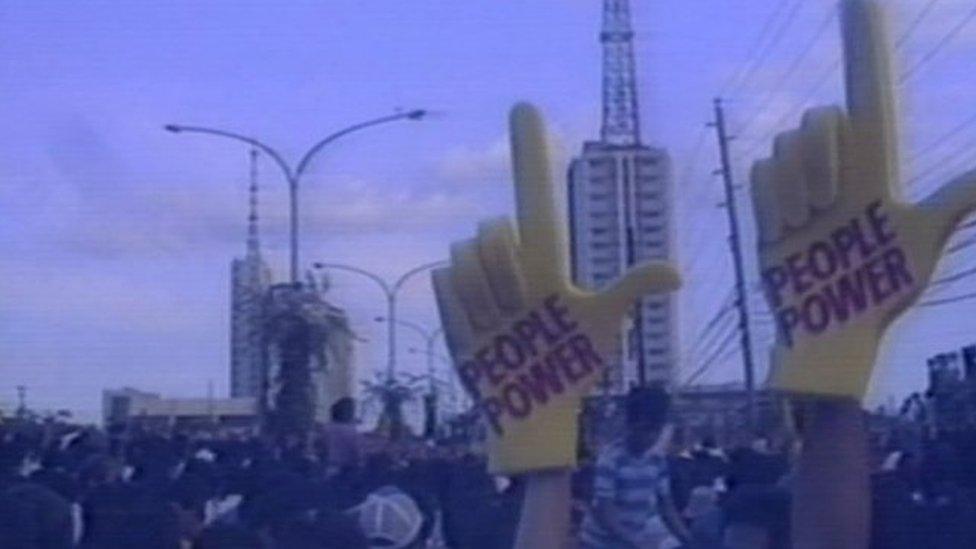Philippines Marcos: Protest against 'hero' burial
- Published
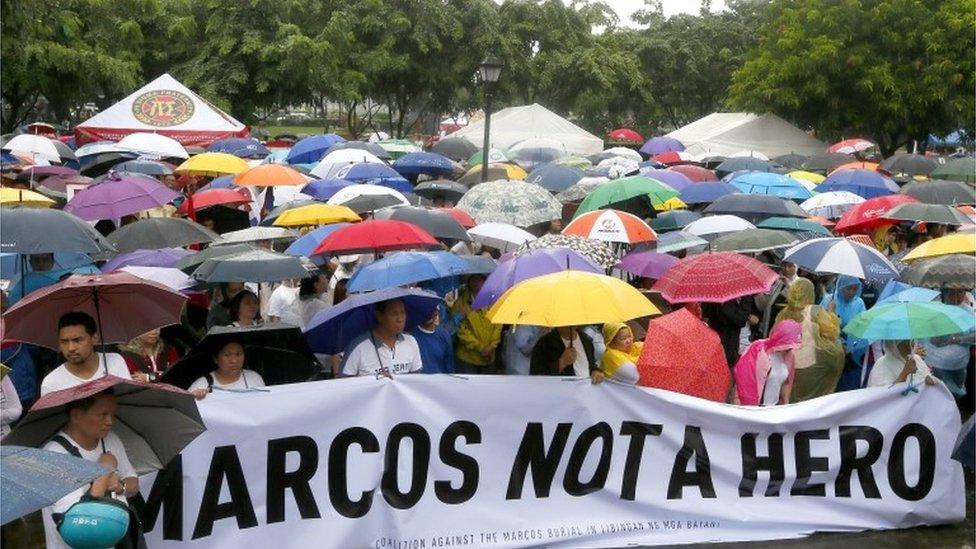
Marcos has been accused of massive corruption and human rights abuses
At least 1,500 people have protested in the Philippines against plans to move the body of disgraced former President Ferdinand Marcos to the National Heroes' Cemetery in Manila.
President Rodrigo Duterte decided last week it could be transferred from Marcos' home city of Batac.
President Marcos brutally repressed dissent until he was overthrown in 1986.
Protesters say a "hero's" burial would be a "grave injustice" to his victims.
Demonstrators assembled in heavy rain at the seaside Rizal Park in Manila carrying banners calling on Mr Duterte to reconsider.
Marcos' embalmed body is on display in Batac. Burial in the capital could take place in September.
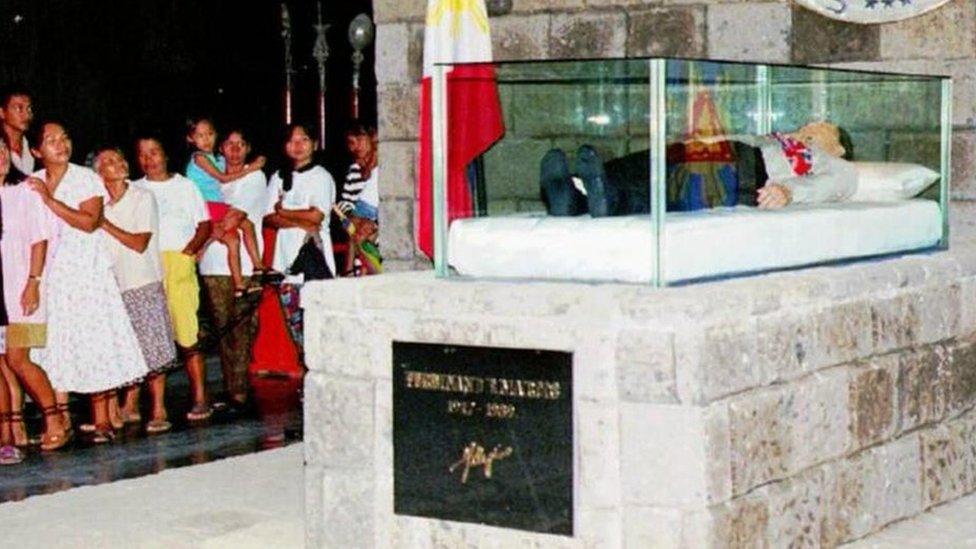
Marcos' embalmed body is on display in the city of Batac
Senator Risa Hontiveros, among those taking part in the protest, has put forward a senate resolution opposing the move, describing Marcos as an "unrepentant enemy of our heroes".
Marcos was elected in 1965, but declared martial law in 1972 heralding a period characterised by corruption, killings, torture and abductions by the military.
He and his wife Imelda were deposed in what became known as the People Power Revolution.
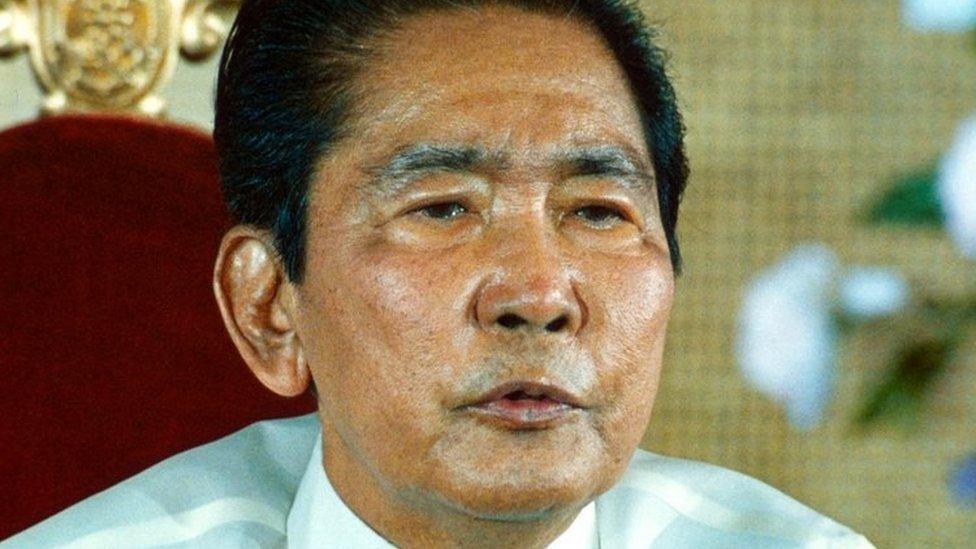
Ferdinand Marcos has been blamed for presiding over gross human rights abuses
Mr Duterte won a landslide election in May, promising a "bloody war" on crime and corruption.
Crime fell during his two decades as mayor of Davao City but human rights groups say more than 1,000 people were killed at the hands of death squads.
Duterte: 'Punisher' to president
Mr Duterte has defended his decision on Marcos, saying he should be buried at the National Heroes' Cemetery because he "was a Filipino soldier".
Most of the 40,000 people laid to rest in the cemetery are from the military, but correspondents say that military regulations exclude those who have been dishonourably discharged.
- Published11 March
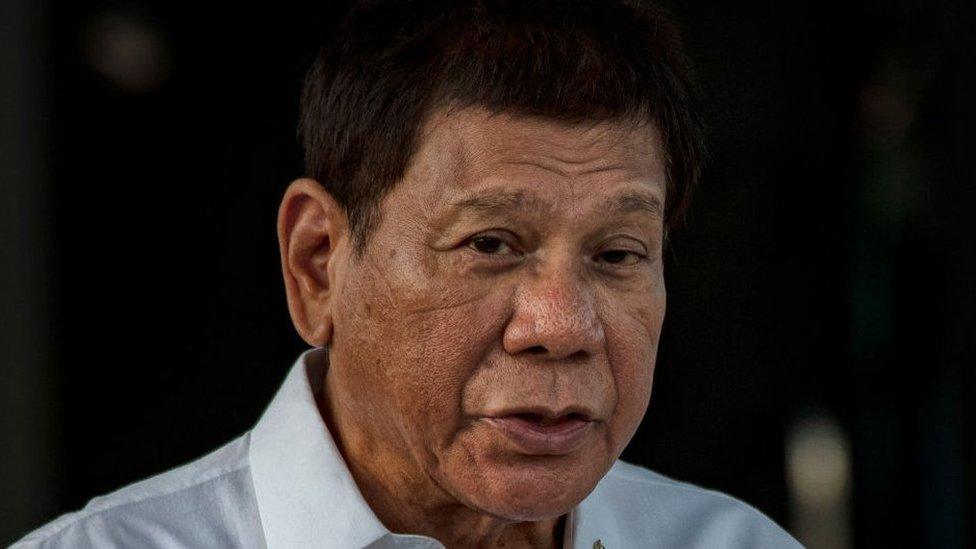
- Published30 September 2016
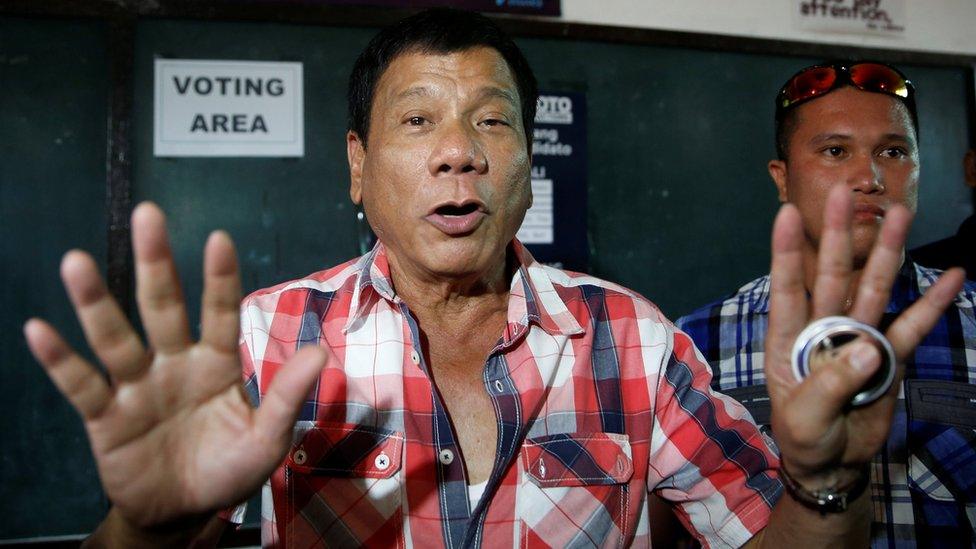
- Published30 June 2016
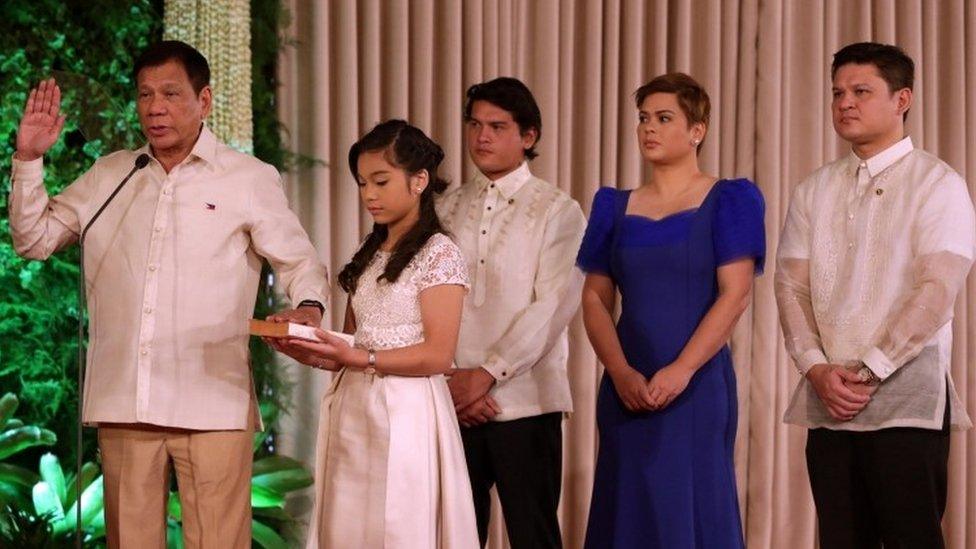
- Published17 February 2016
